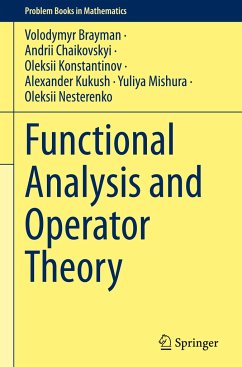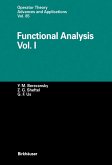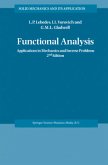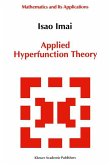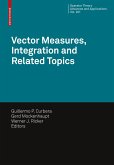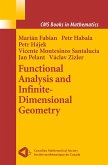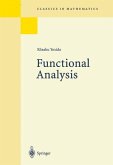The book contains a collection of more than 800 problems from all main chapters of functional analysis, with theoretical background and solutions. It is mostly intended for undergraduate students who are starting to study the course of functional analysis. The book will also be useful for graduate and post- graduate students and researchers who wish to refresh their knowledge and deepen their understanding of the subject, as well as for teachers of functional analysis and related disciplines. It can be used for independent study as well. It is assumed that the reader has mastered standard courses of calculus and measure theory and has basic knowledge of linear algebra, analytic geometry, and differential equations.
This collection of problems can help students of different levels of training and different areas of specialization to learn how to solve problems in functional analysis. Each chapter of the book has similar structure and consists of the following sections: Theoretical Background, Examples of Problems with Solutions, and Problems to Solve. The book contains theoretical preliminaries to ensure that the reader understands the statements of problems and is able to successfully solve them. Then examples of typical problems with detailed solutions are included, and this is relevant not only for those students who have significant difficulties in studying this subject, but also for other students who due to various circumstances could be deprived of communication with a teacher. There are problems for independent solving, and the corresponding selection of problems reflects all the main plot lines that relate to a given topic.
The number of problems is sufficient both for a teacher to give practical lessons, to set homework, to prepare tasks for various forms of control, and for those students who want to study the discipline more deeply. Problems of a computational nature are provided with answers, while theoretical problems, the solutions ofwhich require non-trivial ideas or new techniques, are provided with detailed hints or solutions to introduce the reader to the corresponding ideas or techniques.
Hinweis: Dieser Artikel kann nur an eine deutsche Lieferadresse ausgeliefert werden.
This collection of problems can help students of different levels of training and different areas of specialization to learn how to solve problems in functional analysis. Each chapter of the book has similar structure and consists of the following sections: Theoretical Background, Examples of Problems with Solutions, and Problems to Solve. The book contains theoretical preliminaries to ensure that the reader understands the statements of problems and is able to successfully solve them. Then examples of typical problems with detailed solutions are included, and this is relevant not only for those students who have significant difficulties in studying this subject, but also for other students who due to various circumstances could be deprived of communication with a teacher. There are problems for independent solving, and the corresponding selection of problems reflects all the main plot lines that relate to a given topic.
The number of problems is sufficient both for a teacher to give practical lessons, to set homework, to prepare tasks for various forms of control, and for those students who want to study the discipline more deeply. Problems of a computational nature are provided with answers, while theoretical problems, the solutions ofwhich require non-trivial ideas or new techniques, are provided with detailed hints or solutions to introduce the reader to the corresponding ideas or techniques.
Hinweis: Dieser Artikel kann nur an eine deutsche Lieferadresse ausgeliefert werden.

